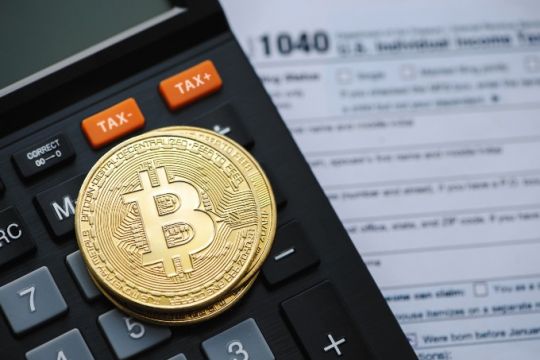Crypto Tax Guide: DeFi and NFTs Tax in Australia

The Australian tax season is upon us and if you are a crypto investor, it’s time to get your affairs in order. If you’ve bought cryptocurrency as an Australian resident, it is important that you consider the tax implications of your transactions.
The ATO has estimated that around 800,000 Australians entered the crypto market in 2021 and it’s likely that almost all will have to report their activities to the ATO to remain compliant. This figure doesn’t even include the number of Australians investing in the space prior to 2021 or in 2022, so the number of crypto investors who need to report activities to the ATO is likely much higher.
Cryptocurrencies and existing tax laws are not the most elegant pair. The ATO has released non-binding guidelines to assist investors in reporting their investment activities correctly, however, it is extremely important that you get in contact with a tax professional if you are unsure about your obligations around reporting crypto-related transactions.
This guide aims to outline crypto taxes in Australia and some considerations around more complex crypto transactions, specifically around Decentralised Finance (DeFi) and NFTs. It is important to note that nothing in the guide is specific tax advice but rather general information that crypto investors should take into account in Australia when assessing their tax responsibilities.
Crypto is Not Anonymous
A trap that many crypto investors fall into is that ‘crypto is anonymous’ and that taxes are not something that need to be considered. The fact is, this is completely incorrect. Crypto exchanges require users to complete Know-Your-Customer (KYC) documentation at the time of signing up and purchasing crypto. After investors provide this information to an exchange, buy their crypto and then send it to an ‘anonymous’ wallet, it is extremely simple to link their personal information to the (so-called) ‘anonymous’ wallet.
As the vast majority of blockchains (Bitcoin, Ethereum etc) are all open source, all of the data is publicly available and linking investors to their wallets is extremely simple. Tax authorities are using this information to crack down on illicit activities and tax evasion as we speak. Even if you haven’t completed KYC with any exchanges, it is still remarkably easy for authorities to track down the location and time at which wallets were accessed. Blockchains and cryptocurrencies, in their very nature, make tracing transactions incredibly easy. This is something to keep in mind if you have not been reporting your crypto activities to the ATO.
Related article: How to buy cryptocurrency in Australia
Capital Gains Tax and Crypto-Assets
As cryptocurrencies are currently treated as a capital asset in Australia, the disposal or sale of cryptocurrencies can create capital gains/losses that need to be reported. The capital gain/loss is calculated by taking the difference between the price the asset was acquired and the price the asset was disposed for. For example, if I bought one Bitcoin for $10,000 and sold it later for $11,000, I would have a capital gain of $1000.
It is important to note that crypto-to-crypto trades involving one crypto being sold for another are considered a disposal event by the ATO, with the capital proceeds of the disposal being used to acquire the new asset. Take this scenario:
An investor buys one ETH at $1000 and later the price has gone up to $1200. The investor trades it for 12 of token X. This results in a capital gain of $200 as the ETH has been sold at a value of $1200 when it was purchased for $1000. The cost basis for each token X is $100, as 12 were purchased for $1200.
It is important to note that, as cryptocurrencies can be used in a variety of different ways, there are potentially many transaction types that could be considered a disposal beyond just a typical ‘sell’. This is especially important for investors who have been involved in any transactions through decentralised protocols such as decentralised swaps, loans, liquidity pools, fees etc.
The good news for crypto investors currently is that just as capital gains events can be triggered through the disposal of crypto, so can capital losses. As all global markets have seen a slump over the last few months, some crypto investors may be able to offset gains with capital losses if their losses were triggered within the tax year. It is important to note that capital losses are only able to offset gains in the current or future tax years, and cannot be used to offset any gains from previous tax years.
Ordinary Income Tax and Crypto-Assets
There are some transaction types that the ATO has indicated could be taxed as ordinary income. It is especially important to understand these transaction types, and how they can affect you, as ordinary income cannot be offset using capital losses. Activities such as staking cryptocurrency, lending cryptocurrency, or locking up assets in order to generate interest or yield will be under the spotlight here. It is highly likely that the yield or interest generated from these activities will be treated as ordinary income by the ATO. A scenario that depicts how this could end up costly is laid out below:
An investor stakes some token A in order to earn some yield in token B. They earn $100 worth of token B per day for a period of 100 days, leading to an increase of ordinary income by $10,000. The investor doesn’t sell any of the tokens, and on day 101, token B loses all value and is now almost worthless. The investor sells the tokens to recoup some small amount of money and realises a capital loss, as the cost basis is allocated as the value at the time the tokens were received. The problem is, the ordinary income still must be reported as $10,000 and the capital loss cannot offset this figure.
This scenario is all too common and it is important to understand the tax implications of what you’re doing when engaging with crypto. The same is also true with airdrops, which the ATO has stated the dollar value of the airdrop at the time of receipt will be taxed as ordinary income (12 July 2020). Some large airdrops occurred in the past financial year, so it is important to ensure that you are reporting these events correctly to avoid penalties.
Decentralised Finance (DeFi) Tax
Once investors move funds off typical centralised exchanges, the opportunity to interact with millions of different decentralised protocols built on the blockchain opens up as investors have the ability to take control of their own money. Many crypto users have interacted with decentralised finance (DeFi) protocols to partake in a whole array of different transaction types including staking, providing liquidity, decentralised swaps, futures and options and even collateralized loans. Whilst the nuances of crypto transactions and the lack of clarity from the tax authorities around different transaction types could leave this area up for a certain amount of interpretation, there are some considerations crypto investors must make.
It is important to understand what constitutes a disposal of your crypto. Typically, a disposal means that you no longer have beneficial ownership of the asset. If you have interacted with smart contracts on a DeFi protocol and deposited assets to earn yield, take a loan or something else, does this constitute a disposal of the asset? If not, what is it? Do you have evidence that will hold up against the ATO that shows why it is not a disposal?
If you have deposited assets into a liquidity pool or similar, and received a ‘receipt token’ in return, does this constitute a trade? Essentially you have disposed of one (or more) assets and received one in return. If you aren’t treating this as a trade, you will need an explanation of why it isn’t one that will hold up against scrutiny from the ATO.
There are countless complex scenarios that could leave crypto investors up the proverbial creek without a paddle. Rebasing tokens, reflections, self-repaying loans, on-chain options and staking vaults are all complex areas that could lead to costly tax obligations if not handled correctly. As a responsible investor, it is important that the consequences of every transaction are understood in terms of taxes.
NFT Taxes
Non-fungible tokens (NFTs) are digital collectibles that have become especially popular in the past 12-24 months. These digital assets can take the form of art, photos, music and also physical assets that have been digitized and represented on the blockchain. The ATO has given specific guidelines on NFTs and has stated that the tax treatment of these digital assets will follow the same principles as other cryptocurrencies. This means that the transactions and tax implications outlined for cryptocurrencies will also apply to NFTs.
In most circumstances, NFTs are acquired using another cryptocurrency. This results in a crypto-to-NFT trade, where the value of the cryptocurrency that is sold to purchase the NFT is then assigned to the NFT as the cost basis. The disposal of the cryptocurrency is a capital gains event. Similarly, when an NFT is sold for crypto, the disposal of the NFT is a capital gains event and the gain/loss of the trade will depend on the dollar value of the crypto asset that is received in return for the NFT.
Just as almost all investment markets have taken a hit over the past months, NFT markets have also succumbed to the slump. The good news is that NFT investors could potentially make a capital loss on eligible NFT trades completed in this previous tax year.
Getting Help with your Crypto Tax
As outlined above, crypto taxes are, at the very least, extremely complicated. Throw a few thousand DeFi transactions, multiple wallets, exchange accounts, poor reporting practices and 20 excel spreadsheets in the mix, you can see how this turns into a nightmare very quickly. Luckily, there is light at the end of the tunnel.
There are some different software packages that can assist in reconciling crypto transactions to make the whole process as quick and painless as possible. There are also some that can help to reconcile transactions from both centralised exchanges and any DeFi protocols or NFT marketplaces you have interacted with.
There is also the option of going straight to your accountant. Many accountants are still unsure of the crypto space so it can be difficult to find someone who is confident in providing assistance. However, there are a few accountants and accounting firms that specialise in crypto which could be worth looking into.
Whatever you decide to do, the most important thing is that you get started early to give yourself plenty of time to decipher your activities without the stress of a looming deadline.
Image by: Deemerwha studio/Shutterstock.com
This article was reviewed by our Content Producer Marissa Hayden before it was updated, as part of our fact-checking process.






